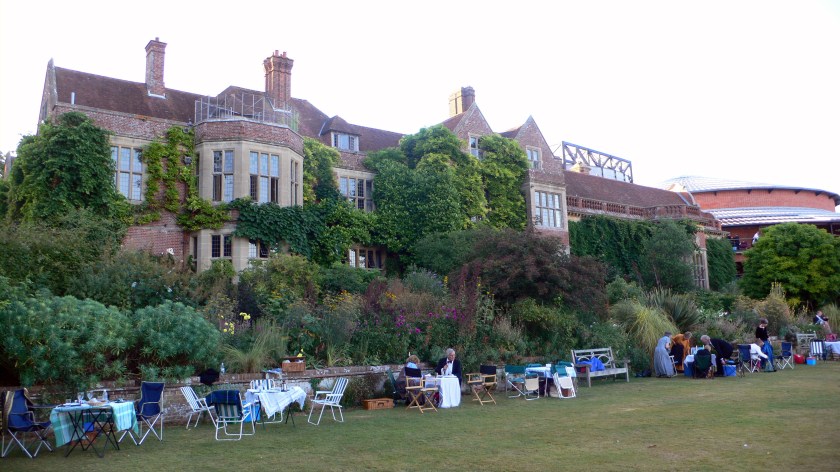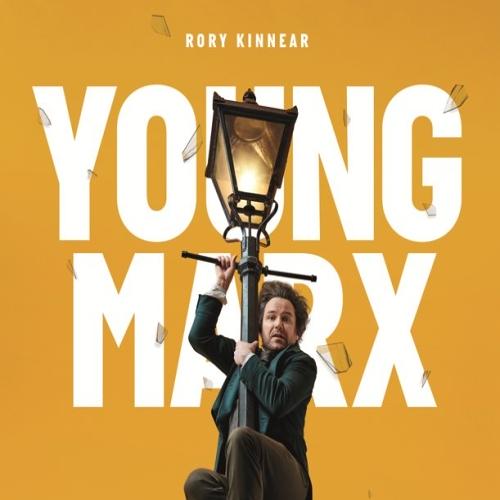
The Moderate Soprano
Duke of York’s Theatre, 7th June 1018
There are a couple of weeks to go in the run of David Hare’s The Moderate Soprano at the Duke of York’s Theatre. There are plenty of (discounted) tickets left. You could do a lot worse than seeing this if you are after a bit of last minute theatre action. It charts the relationship of eccentric millionaire type John Christie and his singer wife Audrey Mildmay, (and the bunch of pre WWII emigres from Central Europe who helped them), as they set out to create the Glyndebourne Opera Festival in, essentially, their back garden. So if a gentle, though still involving, tale of toffs ill-advisedly pursuing their opera dream appeals don’t hesitate. If not I’d understand but you would be missing a treat from one of out greatest living playwrights.
Roger Allam, complete with convincing bald pate courtesy of make-up, and preposterously high-waisted linen trousers, plays Captain John Christie a textbook British oddball who inherited the Glyndebourne estate but didn’t then loaf around Brideshead style, instead leading his troops from the front in WWI, teaching science at Eton and then poking his nose into to matters of Efficiency in the matter of Government in WWII. He loved the opera, specifically Wagner, (I gather some people do though it beats me why), making regular pilgrimages to Bayreuth. He eventually finds love, late in life, and marries English soprano singer Audrey Mildmay played by Nancy Caroll, after much persistent wooing.
The Captain hatches a plan to build a small. 300 seater, opera house in the grounds of the estate, as you do. He recruits conductor Fritz Busch as Musical Director, (his brother was the founder of the legendary Busch Quartet), Professor Carl Ebert as Artistic Director and Rudolf Bing as Festival Director and overall marketing supremo. All three have escaped Nazi Germany, Bing, (whose extraordinary life is worthy of its own dramatisation), because he was a well-to-do Jew married to a Russian ballerina, Busch because his artistic freedom was curtailed (in savage fashion) by Nazi sympathisers, including his own orchestra at one point, and Ebert because of his voluble criticism of the regime. In a series of informal meetings between the five we learn, as does Christie who is initially sanguine about the changes in the Germany he admires, how the regime has attacked the culture it hates, how Christie’s arm is twisted such that Mozart, not Wagner, becomes the staple of the inaugural pre-war seasons for reasons of practicality and how Audrey becomes the glue that holds the whole project together (and gets to sing). Christie aim was to ring world class opera to Britain, previously accustomed to more amateurish fare, and to do this he turned to the best that Europe had to offer.
The most powerful scenes however, in large part thanks to the supreme skill of both Nancy Carroll and Roger Allam, are the flash forwards after the Christies have passed on the baton of running the Festival and as Audrey’s health progressively deteriorates. Audrey and their two kids were sent by Christie to the safety of Canada during the War but, unable to receive money from England, Audrey needed to sing to get by, which eventually led to a bust up with Busch when he refused to cast her in his Cosi at the Met, the shop where he, and Bing, had pitched up post Glyndebourne. They eventually made up and Busch returned to Sussex from 1950. It seems that Audrey was poorly throughout when she returned, often cancelling performances, but was still able to support Christie at Glyndebourne, help Bing set up the Edinburgh Festival, (yes that Edinburgh Festival), and sit on the Arts Council. What a trooper.
We see her near the end, having lost her sight despite surgery for high blood pressure, and the devotion and love between her and Christie pours out off the stage. I am a sucker for watching art portraying old people still plainly in love but I defy you not to be drawn in. Christie in turn is looked after, by faithful retainer Jane Smith (Jade Williams) after Nancy passes away. Lovely stuff.
I fear I may have given a bit too much of the story away but perhaps this means you can see why David Hare, who I assume loves the opera, was drawn to it. Now I have to admit that I would love to see Mr Hare rustle up one of those searing, state of the nation multi-character extravaganzas of old, much like his recent Collateral on the telly. On the other hand his more “domestic”, heir-to-Rattigan, ordinary-made-extraordinary dramas, of which this is a prime example, are just as satisfying. Jeremy Herrin, who has form with both writer and cast, directs with his usual flair, Bob Crowley’s new set opens up to reveal stunning interior and exterior representations of Glyndebourne itself, including Christie’s impressive organ, (no tittering at the back), ably assisted by Paule Constable’s lighting and Simon Baker’s sound designs.
Paul Jesson as Busch, Anthony Calf as Ebert and, especially, Jacob Fortune-Lloyd as Bing are all perfectly cast and tremendous foils for Mr Allam and Ms Carroll, who reprise their roles from the original Hampstead Theatre run. The comedy, which is wired in to Mr Hare’s text, is beautifully executed, to sweetly contrast with the pathos.
Now I ave never been, nor would I ever go, to Glyndebourne. For the same price as even a ticket upstairs at Glyndebourne I could get a couple of luxury visits to Covent Garden, and several years worth of fun from my normal high up perch, or three or four trips to the ENO. I don’t have an evening suit and would vehemently object to wearing one anyway. And I can’t be arsed to travel to Sussex with a bunch of braying toffs. Oh, and as I have said before, most of the classic canon in the world of opera, which is Glyndebourne’s meat and drink, is a dreadful bore. So I can assure you my enjoyment of this play has nothing to do with any great love of the institution despite the fact I am a shocking cutural snob. It is just a very pleasing presentation of a very interesting story, unafraid of its explicit Romanticism.

